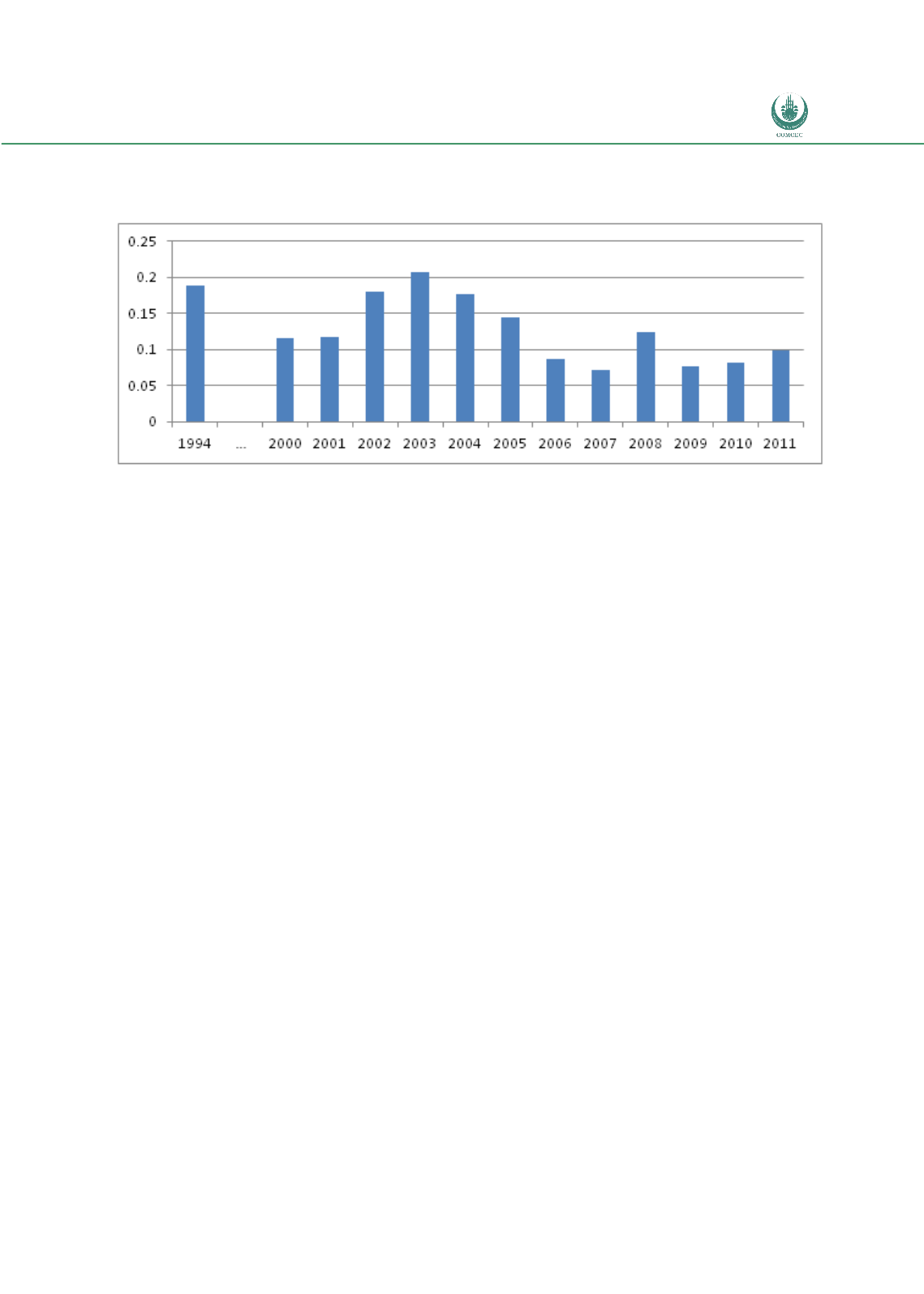

Preferential Trade Agreements and Trade Liberalization Efforts in the OIC Member States
With Special Emphasis on the TPS-OIC
113
Figure 31: Concentration of Jordanian Exports to the EU27, 1994-2011 (higher values indicate more
concentrated exports)
Calculations based on HS 6 digit data on Jordanian exports to the EU27 data
Freund and Portugal-Perez (2012) also document limited effects of FTAs with the EU for
several Middle East and North African (MENA) countries, including Jordan. Some positive
impact is found in empirical analysis utilising the gravity modelling framework for EU exports
to MENA countries, with hardly any impact on Jordan’s (and other MENA countries’ exports to
the EU. Authors suggest this may be due to the limited depth of the agreements, e.g. in
comparison to preferential agreements between European countries negotiating EU accession.
Agadir
The Agadir agreement was signed by Egypt, Jordan, Morocco and Tunisia in February 2004. It
committed all parties to removing all tariffs on trade between them and to harmonizing their
legislation with regard to standards and customs procedures. The Agreement entered into
force in mid-2006 and its actual implementation started in 2007. The implementation is
overseen by the Agadir Technical Unit in Amman. The agreement is open to all Arab
Mediterranean countries that are members of the Arab League and that have association
agreements with the EU. Indeed, the parties as well as the EU have repeatedly encouraged
other Arab countries to join the Agadir Agreement. It is in line with the Arab league charter in
supporting mutual Arab cooperation and moving towards implementing Greater Arab Free
Trade Area (GAFTA)
The parties of the agreement are also members of the Barcelona process and have Association
Agreements with the EU establishing bilateral FTAs with the EU (see above for the discussion
of the Jordan-EU agreement). The EU was promoting the process leading to the Agadir
Agreement and also supports its implementation by providing financial resources to the
Agadir Technical Unit. The Agadir Agreement foresees the elimination of almost all customs
duties and similar charges on trade between the parties.

















